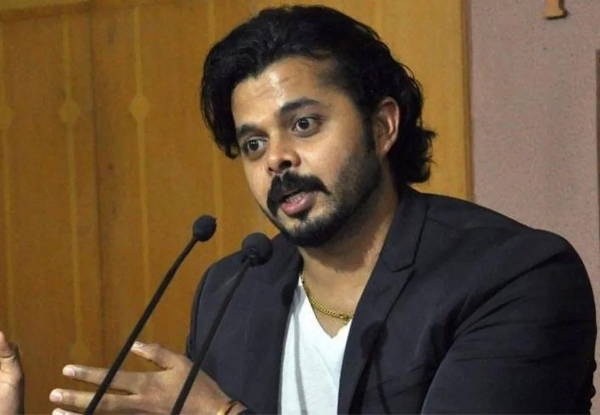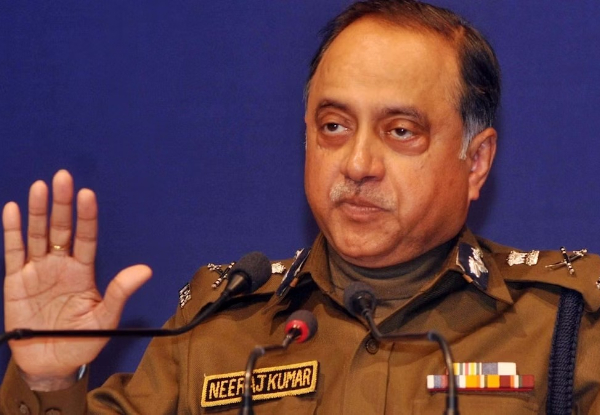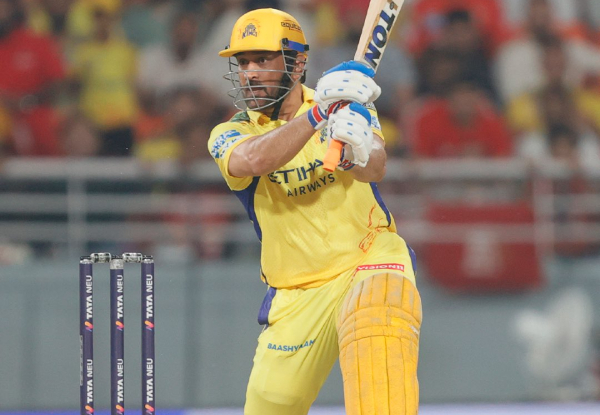Sreesanth escaped due to legal loophole, says Former Delhi CP Neeraj Kumar

Xtra Time Web Desk: Former Delhi Police Commissioner Neeraj Kumar, renowned for his 37-year tenure as an IPS officer, has highlighted the lack of seriousness among stakeholders in addressing corruption within Indian sports. Kumar emphasized this point in reference to the case of disgraced former pacer S Sreesanth, who evaded significant repercussions despite compelling evidence of spot-fixing during the 2013 IPL.
Under Kumar's leadership, Delhi Police's Special Cell apprehended Sreesanth, along with fellow Rajasthan Royals cricketers Ajit Chandila and Ankit Chavan, on spot-fixing charges. However, despite clear evidence against the former India player, the Supreme Court's 2019 ruling prompted the Board of Control for Cricket in India (BCCI) to reassess his life ban. Ultimately, Sreesanth's punishment was reduced to a seven-year suspension, which concluded in September 2020.
Read More: IPL 2024: MS Dhoni’s disengagement in IPL sparks concerns over continued participation
Reflecting on this matter, Kumar lamented the lack of specific legislation in India to combat corruption in cricket or sports in general. He contrasted this with other countries like Zimbabwe, Australia, New Zealand, and various European nations, which have enacted laws to address corruption across multiple sports disciplines. Kumar's remarks underscored the urgent need for India to implement comprehensive legal frameworks to tackle corruption within its sporting realm effectively.
He was also associated with the Hansie Cronje match-fixing scandal in 2000 as part of CBI's investigating team. Kumar said the biggest roadblock in prosecuting corruption in sports is the absence of a law. "So many things that we do, they do not stand test of judicial scrutiny, for instance. If we say, during match-fixing, people were cheated, now the court will ask, show me one person, who is cheated, produce that person in court," he added.

"Who will come to the court and say I went to a cricket match expecting fair-play and for everybody to play to his or her potential? So, in the absence of a victim, it becomes very difficult to prove a case," Kumar explained the grey areas. In India, The Prevention of Sporting Fraud Bill (2013), was tabled in Lok Sabha in 2018, had a provision for five-year imprisonment and a fine of Rs 10 lakh for those found guilty of sporting fraud, including fixing.
Justice (retd) Mukul Mudgal drafted the bill, hailed as a potential game-changer in the fight against match-fixing. Intended to supplant the outdated 'Public Gambling Act of 1867', which imposed a mere Rs 200 fine or three months' imprisonment for betting offenses, the new legislation aimed for greater efficacy. Following his return to the mainstream, Sreesanth even competed in the Ranji Trophy for Kerala before retiring from professional cricket. Now, he participates in various Legends' Leagues and provides expert analysis on numerous broadcasting platforms.
Read More: IPL 2024: Justified criticism or unfair blame? Virat Kohli’s century spurs debate
Acknowledging the efforts of law enforcement, a judge lauded the Special Cell's commendable work in uncovering corruption within the sport. However, in the absence of appropriate legal provisions, the court found itself unable to convict or sentence those involved. As recounted by Kumar, author of 'A Cop in Cricket', these were the judge's exact sentiments. He remains optimistic that the ongoing case, currently under review in the Delhi High Court, will eventually reach a satisfactory resolution. Despite initial delays due to the COVID-19 pandemic, recent hearings indicate progress, and Kumar suggests a potential reversal of the previous order, citing additional evidence yet to be presented.
"Sreesanth got reprieve from Kerala HC but it has not said he is innocent." Kumar also feels that the case against former India skipper Mohammed Azharuddin, who was implicated in the 2000 scandal, "wasn't allowed to be completed". "...if the Azharuddin case would had been allowed to reach its logical conclusion, some very big names would have been exposed but that was also not allowed. "...somewhere there is lack of seriousness in dealing with corruption in sport, particularly cricket. Big names did come to light, they were put in a sealed envelope and it still remains sealed in the Supreme Court," Kumar mentioned the individuals listed by Justice Mudgal's committee to the Supreme Court.



23.jpg)
22.jpg)
